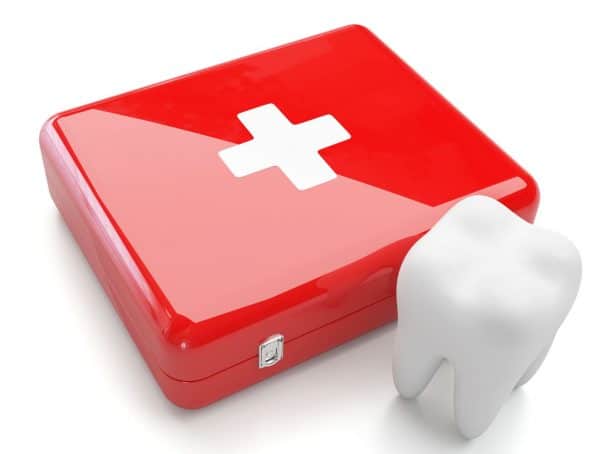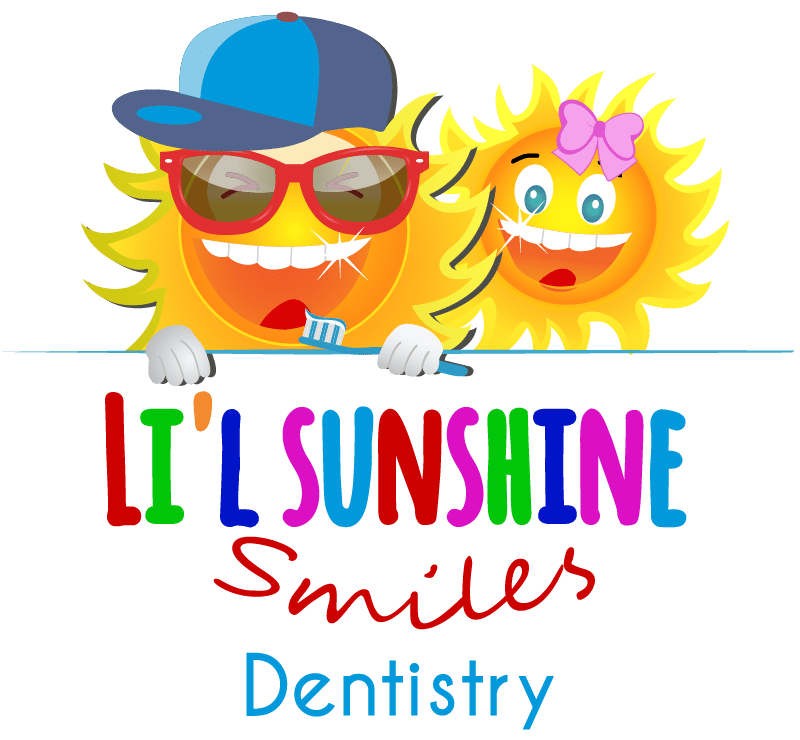
Most Common Dental Emergencies: What to Do
- Knocked out a permanent tooth. Because time is critical for saving the tooth, report this injury right when it happens to a member of our dental team. Since neighboring teeth can sustain injuries, you want to make sure there is no damage to them. Because it is possible to reimplant a lost permanent tooth, the following steps are pivotal.
Here’s what to do:- Find the lost tooth. Try not to touch the roots, only touch the crown of the tooth;
- Carefully clean the tooth with water without scrubbing or scraping;
- Gently reinsert the tooth to its original location or ask the child to keep the tooth in their mouth against their cheek while you travel to our Li’l Sunshine Smiles office–only attempt this with older children. Younger children run the risk of swallowing the tooth. With younger children, you can place the tooth in milk or saliva until you reach our office.
- Keep the tooth moist while you are in route to our office. Moisture is key for re-implantation success;
- If it is after hours and you are unable to contact a member of our team do not wait. Take your child to the emergency room to save the tooth. The chances of re-implantation success are greatly reduced after one hour.
- Toothache. Toothaches are one of the most common dental emergencies parents/patients face so knowing what to do will get you far. Tooth-related pain can vary from moderate to severe. Although erupting teeth will often cause toothaches, they do not require an office visit. Typically this kind of toothache responds well to over-the-counter pain relievers. However, toothaches related to broken teeth, tooth decay or tooth trauma will need an in-office evaluation.
What to do:- Clean the tender area with warm water;
- Do not apply heat to the tooth or the area around the tooth;
- Check if any trapped food and remove it with floss, a proxy brush, or a toothbrush;
- Apply an icepack to hurt area to reduce swelling and pain;
- Contact our office.
- Knocked out a baby tooth. Contact our office during business hours. Often, this isn’t a dangerous emergency and no treatment will be necessary, but call our office for a consult.
- Tooth displacement. A displaced tooth is one that has been hit with enough force to make it loose. So, a displaced tooth may be partly removed from its socket and should be treated with care. Primary teeth usually heal on their own or will just fall out in time without medical intervention, but permanent teeth need a little more help. Even if the displacement is slight teeth need an exam because slightly displaced teeth are prone to infection.
- Broken tooth. Contact our office immediately if your child breaks a tooth. Dental emergencies, like a broken tooth, require your quick action to determine if you save the tooth. Quick action also protects your tooth from infection. What to do: 1) Rinse the mouth with water and apply a cold compresses to help reduce swelling; 2) Find and save any broken tooth fragments and bring them with you to our office.
- Root fracture. A root fracture occurs from direct trauma to the tooth. Root fractures are usually undetectable without a dental x-ray. Rule out a root fracture if any of your teeth have taken a significant impact. Failure to catch a root fracture can cause you to lose the tooth. Treatment will depend on the positioning of the fracture and how much pain the patient is in. The tooth will be monitored, treated, or extracted–as a worst case scenario. What to do: 1) Place a cold compress on the area of discomfort/injury; 2) Administer dentist-approved pain relief; and 3) Contact us for further instructions.
- Dental concussion. A tooth that has received a good hit, but has not been displaced or knocked out is called “concussed.” Dental concussion injuries are very common in toddlers who tend to fall more often/easily. Dental concussion can cause permanent or temporary tooth discoloration depending on the severity of the concussion. If you notice the tooth darkening in color it is usually an indication that the tooth is dying and that it may need root canal therapy. Most dental concussion injuries are not true dental emergencies and do not require emergency treatment, but should be reported to our office.
Schedule a Dental Emergency Follow-Up Appointment
Following a dental emergency, it is important to schedule an appointment so we can ensure that emergency measures were performed correctly. If you would like to learn more about what to do in a dental emergencies, or any of Li’l Sunshine Smiles’ other services, or to make an appointment, call 813-576-0200. Remember, no question is unimportant. Call us! We are here to help! Injuries to the mouth can be scary.

